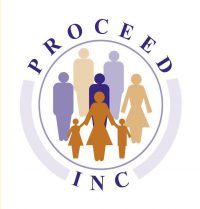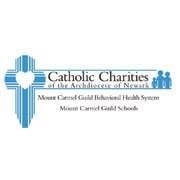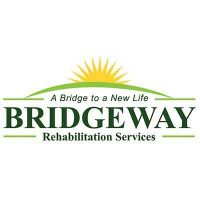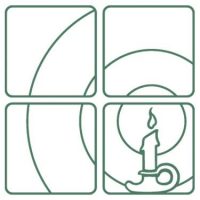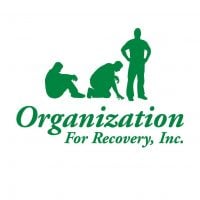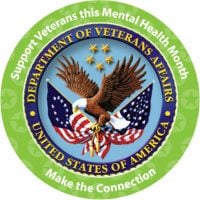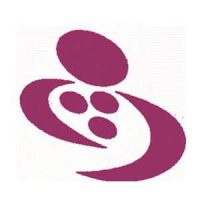Elizabeth, NJ Drug and Alcohol Centers
The drug addiction and abuse problems in Elizabeth, NJ are quite prevalent. Some drugs such as cocaine, heroin, prescription drugs, and marijuana are commonly abused in the city. The contributing factors to the drug and alcohol addiction problems in Elizabeth are many. Some of these factors include easy access to drugs, poverty, and lack of education and awareness about the dangers of drug abuse.
There are a number of drug and alcohol treatment centers in the area that can help those who are struggling with addiction to get the help they need. There is also a strong community support system in Elizabeth for those who are affected by addiction.
With a variety of opioid and alcohol rehabilitation services operating in New Jersey, there is opportunity for treatment and a better life in Elizabeth. There are a number of different rehab services available for the treatment of addiction in Elizabeth.
Professional Assistance is only a call away
We will help you find treatment based on your location, budget, and specific needs and help you get started safely.
Free + Confidential Consultation
Browse 14 Centers in Elizabeth, New Jersey
Trinitas Regional Medical Center is an accredited facility by JCAHO offering various levels of care and aftercare support, providing individuals looking to get sober in New Jersey with suitable treatment options.

The Lennard Clinic III is an Addiction Treatment Facility located in Elizabeth, NJ that provides a full spectrum of evidence-based treatments, including Aftercare Support, Detox, Dual-Diagnosis services, Intensive Outpatient services (IOP) and traditional Outpatient Levels of Care (OP), to those suffering from Alcoholism, Opioid Addiction, Substance Abuse, Dual Diagnosis and Drug Addiction.


Proceed in Elizabeth, New Jersey, is an addiction treatment facility that provides comprehensive care options for those suffering from addiction and substance abuse issues, including detoxification, therapy, counseling, case management, and educational classes, all tailored to the individual's specific needs.


Catholic Charities of the Archdiocese of Newark - Jersey City
Catholic Charities of the Archdiocese of Newark - Jersey City provides comprehensive addiction treatment, including outpatient care, dual diagnosis services, and post-treatment aftercare support, to help people suffering from substance use disorders recover and stay sober.
Bridgeway Rehabilitation Services provides specialized and individually tailored substance abuse recovery services from residential to outpatient care, emphasizing evidence-based practices and holistic therapies, including dual diagnosis and mental health treatment, with the option of private health insurance for financial ease.
Trinitas Regional Medical Center, founded in 2000, offers a comprehensive, evidence-based drug rehab program with inpatient, outpatient, and dual diagnosis services and is accredited by JCAHO and accepts private health insurance.

Trinitas Child - Behavioral Health Services in Elizabeth, New Jersey, is an accredited addiction treatment facility offering a comprehensive range of services and personalized treatment plans to help individuals struggling with addiction and substance abuse achieve recovery and lead a healthy life.

Intervention Specialist
This addiction treatment facility in Elizabeth, NJ provides expert care from professionals and various levels of care to meet individuals' needs, along with aftercare support to help with long-term sobriety.
Father Hudson House
Father Hudson House in Elizabeth, New Jersey is a treatment center that offers individual therapy, holistic services, and support for families of those struggling with addiction and mental health issues.
Organization for Recovery - Elizabeth is a leading addiction treatment facility in New Jersey that offers evidence-based treatment programs tailored to meet the specific needs of each patient, including detoxification, residential treatment, intensive outpatient programs, aftercare services, trauma-informed care, creative therapies, and a mental health component.

Flynn Fellowship Houses of New Jersey
Flynn Fellowship Houses of New jersey specializes in drug rehab, offering comprehensive inpatient services, guidance, education sessions and activities tailored to individual needs in order to help individuals struggling with addiction get clean and stay sober long-term.
Family and Children's Services - North Avenue in Elizabeth, New Jersey is a private family treatment center that provides specialized care and support for individuals and families dealing with addiction and substance abuse, offering a personalized approach to treatment and access to community resources.
VA New Jersey Health Care System - Elizabeth Outpatient Clinic


Family and Children's Services - Grand Street in Elizabeth, N.J., provides personalized, evidence-based treatment for addiction and substance abuse, offering a full spectrum of clinical therapies, as well as relapse prevention, aftercare, individual counseling, and group therapy services.
Information About Substance Abuse and Addiction in Elizabeth, NJ
There are several drug and alcohol rehab centers in Elizabeth that can help those who are struggling with addiction. The centers offer a variety of treatment options such as detoxification, counseling, and medication.
Detoxification is the process of ridding the body of all drugs and alcohol. This can be done in an inpatient or outpatient setting. Counseling is offered both individually and in groups. The goal of counseling is to help people understand their addiction and how to live without drugs or alcohol. Medication may also be prescribed to help with the withdrawal process and to reduce cravings for drugs or alcohol.
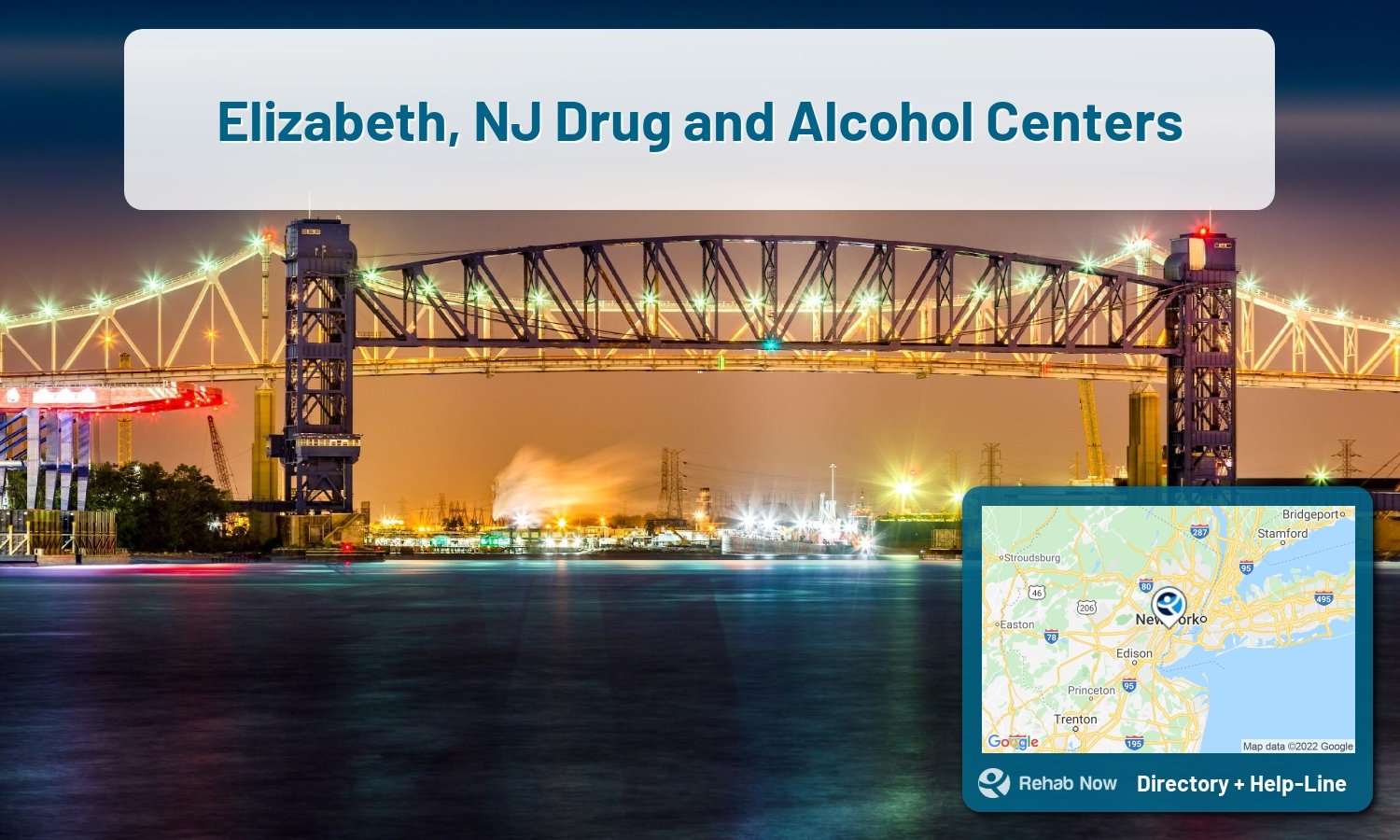
What types of treatment are available in Elizabeth, New Jersey?
There are a variety of treatment options available in Elizabeth, New Jersey.
Some of the most common include inpatient and outpatient rehab, 12-step programs, and therapy.
Inpatient rehab involves living at the rehab center for a predetermined amount of time, while outpatient rehab allows you to live at home and attend regular therapy sessions.
12-step programs are free and open to the public, and therapy can be done in a one-on-one setting or in a group setting.
How expensive is drug and alcohol rehab in Elizabeth, New Jersey?
The cost of drug and alcohol rehab varies depending on the type of treatment you choose.
Inpatient rehab can be expensive, with the average cost ranging from $10,000 to $30,000 per month. However, many facilities offer scholarships or payment plans to make it more affordable.
Outpatient rehab is typically less expensive, with the average cost ranging from $5,000 to $10,000 per month.
Drug and Alcohol Statistics in Elizabeth, New Jersey
In 2018, there were 858 drug overdose deaths in New Jersey. This is a 9% increase from the previous year. Heroin was involved in 33% of these overdose deaths. About, 37% of victims of drug overdoses were between the ages of 25 and 44.
In Elizabeth, it was estimated that about 9,000 people were dependent on or abusing illicit drugs in 2019. This is about 8% of the population. The most abused drug in Elizabeth was marijuana. There were also 390 reported cases of HIV/AIDS in Elizabeth in 2018. About 72% of these cases were due to injection drug use.
- Only 18% of people in Elizabeth who need drug addiction treatment receive it.
- 19% of people who abuse drugs are youth under the age of 21.
- 23% of drugs users are also alcoholics.
- 41% of people who are admitted to treatment centers for drug abuse also have a mental health disorder.
Additional Treatment Centers in New Jersey
The state of New Jersey is afflicted by the rising opioid overdose crisis and the increase in the number of residents engaging in illegal substance abuse. 90% of the 2,900 drug overdose deaths in New Jersey involved opioids in 2018. Over 1.1 million New Jersey residents reportedly use drugs in a given year. High prevalence of drug and alcohol abuse caused 14% of all deaths in the state between 2008 and 2017.
Still haven't found the right recovery center? Browse nearby New Jersey cities.
- Cape May Court House, NJ (114.0 mi.)
- Northfield, NJ (91.1 mi.)
- Dover, NJ (24.6 mi.)
- Ledgewood, NJ (28.6 mi.)
- Millville, NJ (97.7 mi.)
- Little Falls, NJ (14.5 mi.)
- Atlantic City, NJ (90.4 mi.)
- Somerset, NJ (18.9 mi.)
- Florham Park, NJ (13.3 mi.)
- Rahway, NJ ( mi.)
- Fort Lee, NJ (17.9 mi.)
- Lyons, NJ (18.4 mi.)
- Trenton, NJ (39)
- Newark, NJ (36)
- Paterson, NJ (25)
- Camden, NJ (24)
- Cherry Hill, NJ (22)
- Hackensack, NJ (20)
- Toms River, NJ (19)
- Jersey City, NJ (19)
How will I know if drug or alcohol rehab is working?
It is important to keep in mind that rehab is not a quick fix. It can take time for someone to recover from addiction. There are no guarantees that rehab will work, but it is the best chance that someone has of overcoming addiction. There are several ways to tell if drug or alcohol rehab is working.
For example, you should start to feel more like yourself, have more energy and motivation, be able to think more clearly, and feel less cravings for drugs or alcohol. You may also find that your relationships improve and that you’re better able to handle stress. Of course, it’s important to remember that progress is often slow and incremental. So even if you’re not seeing big changes right away, know that things are likely getting better.
Will I be able to see my family and friends while I’m in rehab?
The amount of contact you have with family and friends while you’re in rehab will depend on the facility you’re attending and the type of program you’re enrolled in. In some cases, visitors may be allowed on a daily basis, while in others, contact may be limited to once a week or less.
There are also facilities that prohibit visitors altogether during the early stages of treatment. The reason for this is to help patients focus on their recovery and avoid potential triggers. However, even if visitors are not allowed, most facilities offer other ways to stay connected, such as phone calls, letters, and emails.
In addition, many facilities offer family therapy sessions, which can help loved ones better understand the addiction and learn how to support the recovery process.
How do I choose the best drug and alcohol rehab center for me?
The best drug and alcohol rehab center for you will depends on your individual needs and preferences.
Some things to consider when choosing a rehab center include the type of treatment offered, the cost, location, and whether or not it accepts your insurance. You may also want to consider the reputation of the center, the staff’s qualifications, and the length of the program.
Once you’ve narrowed down your options, take some time to research each potential rehab center. Read reviews from other patients, and check the accreditation status. Also, be sure to ask about insurance coverage and payment options.
Finally, schedule a visit to each center and talk to the staff about what you can expect.
How do I know if my loved one needs drug or alcohol rehab?
If you’re worried that your loved one may have a drug or alcohol addiction, there are some signs to look out for.
Common signs of addiction include using drugs or alcohol despite knowing the risks, hiding drug or alcohol use, declining in school or work performance, and changes in personality or social behaviors.
If you think your loved one may need help, it’s important to talk to them about it. You can start the conversation by expressing your concerns and asking if they’ve been thinking about getting help.
If they’re resistant or don’t seem interested, don’t give up. You can try again later or consult with a professional, intervention can be an effective way to get someone to agree to rehab.
What is the recovery process like after drug and alcohol rehab?
The recovery process after drug and alcohol rehab can be challenging, but it’s worth it.
Most people in rehab will start with an intensive inpatient program, which usually lasts 30 to 90 days. This is followed by an outpatient program, which typically lasts for six to 12 months.
During the outpatient program, you’ll attend regular therapy sessions and continue to receive support from your rehab team.
The goal of rehab is to help you build a solid foundation for long-term recovery. This means that you’ll need to make changes in your lifestyle and coping strategies, and you may need to attend support groups or therapy sessions indefinitely.
Elizabeth, NJ Treatment Centers. Find drug rehab in Elizabeth, New Jersey, or detox and treatment programs. Get the right help now! (888) 674-0062.


